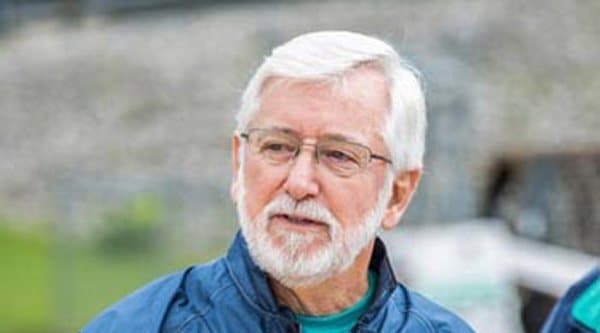Minibytes by Al Allen
The mismanagement of expectation can seriously affect the results of an oil spill, including the spiller’s reputation, the costs for damages and cleanup, the creation of new rules and regulations, etc. These and many other impacts will be addressed in this and the next two blogs). Just for fun, I will compare some of the lessons from good expectation management involving oil spills to the management of expectations that arise during the joyful and often humbling experiences of marriage and the game of golf. Yes…, Yes…, I have graciously agreed to have my wife read and comment on topics of “joint” interest.
I’d like to start with one of the most significant expectations involving spill response that has not been managed well. For the past several decades the oil spill response community (including industry, regulators, the media, and the general public) has been exposed to a “myth” regarding the success with which oil spills can be cleaned up. With the best of intentions, regulations have been created to ensure that adequate equipment and trained personnel are available to handle a so-called “Worst Case Discharge” of oil from vessels, exploration and production platforms, pipelines, and many other petroleum-handling facilities. Regulations and oil spill contingency plans often describe the resources and tactics needed for oil spill control as “Planning” standards, not “Performance” standards. However, even when good planning standards are developed, based on meaningful system performance criteria, those standards are often misunderstood and misused. The misuse occurs when regulators, planners, and response organizations use the standards as measures of performance to determine the amount of resources (i.e., vessels, skimmers, booms, aircraft, people, etc.) needed to clean up a “Worst Case Discharge”.
Expectation management is needed in order to better understand oil spill response technology, real-world operational constraints, and what levels of success can be achieved under various environmental conditions. There needs to be an educated and more balanced perspective regarding the full range of available response techniques, including controlled burning and the application of chemical dispersants. The response community and the general public must be informed of the benefits, limitations and tradeoffs associated with these techniques, many of which were described in my earlier blogs (#5 & #6) and that even under the best of conditions, one can never expect to recover or eliminate all of the oil spilled. Without such expectation management, many people will continue to believe that one can simply buy a solution to any oil spill challenge. Federal and state planning standards and regulations need to be developed and explained thoroughly to the public/media. Such information should address realistic operational and environmental constraints, as well as practical levels of response capability. The type and number of resources that can be maintained and operated safely and effectively for a given area, project, or facility should reflect a careful assessment of the most probable spill events that might occur, while recognizing that backup resources can be cascaded in to support a more serious spill event.
How does all of this relate to marriage and golf? You will see, as I expand this discussion involving the importance of expectation management. In fact, you may already recognize some of the obvious similarities involving spilled oil, spouses and golf:
- Every spill, spouse and golf experience is different.
- You never achieve “perfection” cleaning up spills, being married or playing golf.
- Just when you think you are a good responder, partner or player, you get humbled…, again!
- There are an infinite number of variables, ensuring that you will never get good. Maybe better.
- Most spills, many marriages and all attempts to master the game of golf are expensive.
- Failed efforts involving spilled oil, spousal arguments and a lousy round of golf usually fade from memory, and we optimistically try again, and again, and again.
- Resources (e.g., plans, manuals, tools, boats, aircraft, money, etc.) are all important, and clearly help in response to spills; however, whether it’s a spill, the mending of a marriage or a faulty golf swing, it’s the value of “Team Support” that matters more than anything.
So many of the “expectation management” issues I plan to address in the next couple of blogs relate to this concept that the chances for success in nearly all activities comes down to people and the support they provide. The “team” I consider with spill response involves the spiller, regulators, contractors, environmental groups, the public, the press, etc. All of these people need to have a common level of understanding involving all response options (mechanical, burning and dispersant use), the pros and cons of these options, and their tradeoffs. There has to be a commitment to work together with what they do know, and to strive to know what they don’t know! Expectations can be discussed and managed effectively when functional, well-informed team members (especially the media and the public) are able to focus on the merits of balanced tradeoffs, realistic environmental impacts, short- and long-term goals, etc.,. I’ll be expanding on these topics, and most importantly, on ways that expectations can be addressed and coordinated for a common understanding.
The “team”, so to speak regarding marriage is what I think of as not just my partner and me, but as “us”, the two of us retaining our individuality while working as a single caring unit with our closest family members. My Sweetie and I have lived the ups and downs of marriage and raising a family now for 44 years. It took a few years to discover how to blend our expectations. That process is a continuing effort, as is the same effort by responders involving oil spills, because technology, the environment and personnel are always changing.
Perhaps that is why I love the challenges of golf so much. While performance and my own expectations for improvement are pretty much a single-person effort, anyone that plays golf comes to know that the “team” is made up of your body, brain, and spirit – the mismanagement of any one of those participants can totally destroy the outcome of an otherwise enjoyable round of golf.
Next blog: More on Expectation Management, and ways to enlighten expectations, brighten marriage, and enjoy the frustrations of golf.

Alan A. Allen has over five decades of experience as a technical advisor and field supervisor involving hundreds of oil spills around the world. Al is recognized as a leading consultant and trainer involving oil spill surveillance and spotting techniques, the application of chemical dispersants, and the containment, recovery and/or combustion of spilled oil under arctic and sub-arctic conditions.
Copyright© 2018, Al Allen. Unauthorized use and/or duplication of this material without express and written permission from this blog’s author is prohibited.
